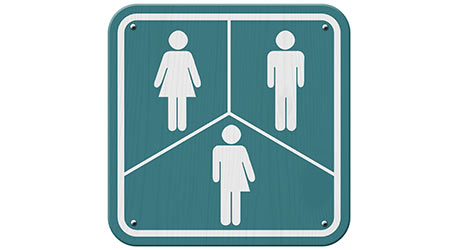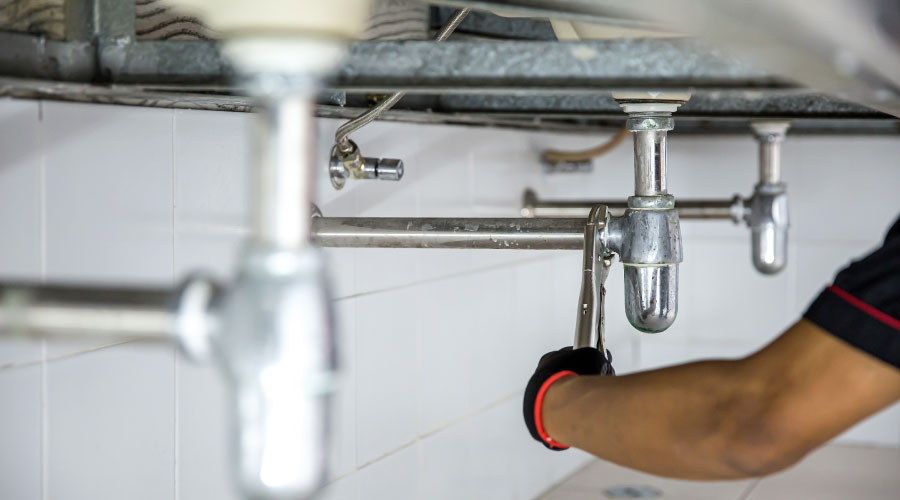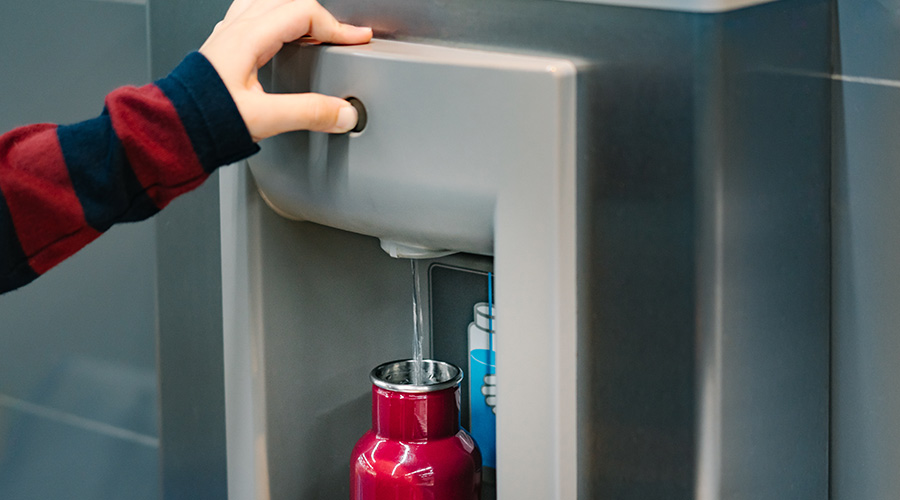Get To Know the Federal Laws Related To Transgender Restroom Access
Second part of two-part article on questions FMs should consider related to transgender access to restrooms, locker rooms, and showers.
The primary federal laws being applied in regards to transgender access to restroom, locker room, and showers are Title VII, discrimination in employment status under the Equal Employment Opportunity Commission (EEOC), and Title IX under the U.S. Department of Education, which bans sex discrimination. In addition, the U.S. Department of Justice, the Office of Personnel Management, and the Occupational Safety and Health Administration also have weighed in.
At least 18 states and the District of Columbia already have laws that prohibit discrimination against transgender people. The states that already have transgender antidiscrimination laws on their books are California, Colorado, Connecticut, Delaware, Hawaii, Illinois, Iowa, Maine, Maryland, Massachusetts, Minnesota, Nevada, New Jersey, New Mexico, Oregon, Rhode Island, Vermont, and Washington. More are expected to follow the federal lead during the next few years, notes Paranac.
According to the American Civil Liberties Union (ACLU), governors in Indiana, Kentucky, Michigan, New York and Pennsylvania also have issued executive orders banning transgender discrimination for state workers.
About 100 cities and counties do not allow gender identity discrimination. Among these are Atlanta, Austin, Boise, Buffalo, Cincinnati, Dallas, El Paso, Indianapolis, Kansas City, Louisville, Milwaukee, New Orleans, New York City, Philadelphia, Phoenix, Pittsburgh and San Antonio, says ACLU’s website.
Requirements still murky
Only a few years ago, providing access to a private restroom met the requirement for transgender access. However, that is changing. “In employment settings, restrooms and locker rooms must allow individuals access consistent with their gender identity,” explains Paranac.
For small companies, single stall restrooms that are gender neutral may be one way to anticipate new requirements. Larger companies and schools with gender-specific facilities, however, will need to consider addressing the transgender issue in gender-neutral ways.
For instance, new signage may be required. But Paranac points out that a specific way of addressing that signage has not been defined.
“There currently is nothing in federal law that spells out precisely how to comply with the directions being taken by the courts,” explains Paranac. “You can offer a unisex facility in the meantime, but transgender people may not be required to use it. The law now says you cannot tell someone they cannot use a common restroom.”
As for dealing with complaints from other building occupants, Paranac empathizes with facility managers. “I realize FMs are getting a lot of complaints under the interpretations of federal laws for transgender individuals,” he says. “But that is no excuse to discriminate.”
Rita Tatum, a contributing editor for Building Operating Management, has more than 30 years of experience covering facility design and technology.
Email comments and questions to edward.sullivan@tradepress.com.
Related Topics:













